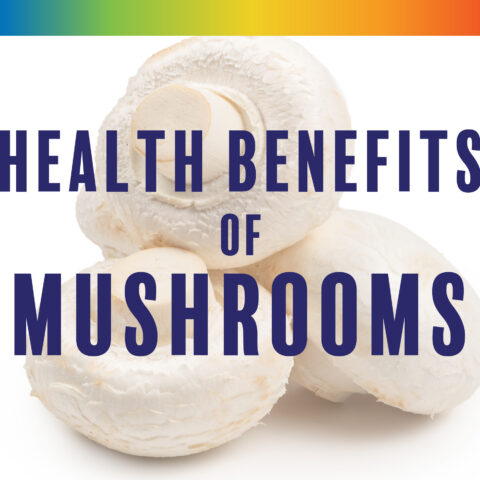Healthy Foods and Micronutrients That Boost Your Immune System

Cold and flu season aren’t the only times to consider your immune system. Doing what you can to support your immune system is always a good idea. If you’re working long hours, exercising intensely, or have kids in daycare or school, then you’ll likely be more exposed to bacteria and viruses that can leave you feeling run down. If you feel a cold coming on, consider these healthy foods to boost your immune system.
When Your Immune System Is Struggling
Research tells us that as your cortisol stress levels increase (from busy days, meeting deadlines, or getting up early with the kids) your first line of immune defense or innate immune system function decreases.1 This leaves your immune system short-handed.
Staying active is a great way to enhance your immunity but the more intensely you train, the quicker you deplete critical ‘immune soldiers’ called natural killer cells (NK).2 Studies show your immune system can be depressed for 24-72 hours after intense training, which means you need to provide the right support to reduce your risk of colds and flu.3
Here’s what you can do to boost your immunity even when your system is struggling. (Hint: The answer is on your dinner plate!)
Get Enough Vitamin D
If you live in a northern climate with a true fall and winter season, obtaining the right amount of vitamin D is critical for keeping your immune system firing on all cylinders. Vitamin D deficiency is associated with decreased innate immunity and increased risk for infections.4
The best part of a Paleo dietary approach is that it encourages you to eat the most nutrient dense food choices. To keep your vitamin D levels from plummeting over the winter months, increase your intake with these 5 vitamin D rich foods:
- Cod Liver Oil – 1,400 IU per tbsp. (your grandma knew best!)
- Cold-Water Fatty Fish – trout (645 IU per 3 ounce), salmon, or mackerel
- Medicinal Mushrooms – Portobello (375 IU per mushroom) or maitake
- Pork – 78 IU per 3 oz. serving
- Eggs – 44IU per egg
The Vitamin D Society recommends maintaining your vitamin D levels between 100-150 nmol/L (40-60 ng/mL), so if you struggle with colds and flu, or low mood over the winter, then getting your levels tested can be beneficial.5
Focus on Vitamin A
If you are low in Vitamin A, it will significantly impair your mucosal immunity and leave you more prone to upper respiratory tract infections (URTI).6 If you work in an office, have kids in daycare or school, or train intensely than you’ll be at much greater risk of URTI, especially through the winter months.
Pastured, organic meats are the richest source of preformed vitamin A. You can also get significant beta-caretene (which converts to vitamin A) from fruits and veggies.
Try these 5 Paleo-rich vitamin A foods to keep your immune system robust:
- Turkey and beef liver (17,000 IU and 6,400 IU per 2.6 oz., respectively)
- Cod liver oil (4,150 IU per TBSP)
- Sweet potatoes (1,100 IU per medium size)
- Pumpkin (1,000 IU per ½ cup)
- Carrots (700 IU per ½ cup)
Remember the Power Combo of Vitamin C & Zinc
Vitamin C and zinc are a powerful combo for ramping up your immune army and fighting off bacteria and viruses. Vitamin C improves the response of neutrophils and lymphocytes – important immune cells that are the ‘front-line soldiers’ of your innate immune system.7,8
Zinc is essential for the optimal function of your thymus gland, responsible for developing the ‘special forces’ immune cells of your adaptive immune system.9 This is the seek and destroy arm of your immune system, crucial for knocking out foreign invaders once they’ve breached your first-line of defense.
Animal protein is the best dietary source of zinc, while a mix of fruit and veggies are key for boosting your vitamin C intake (some sources may surprise you!). To ensure you’re meeting your body’s increased demands throughout the fall and winter months, be sure to include the following foods:
Vitamin C
- Yellow bell peppers (345mg per large pepper)
- Broccoli (92mg per cup, chopped)
- Kale (80mg per cup, chopped)
- Oranges (70mg each)
- Kiwis (64mg each)
Zinc
- Oysters (33mg per 6 oysters)
- Beef (14mg per 4.5oz. fillet)
- Lamb (7mg per 3oz.)
- Pork (4.3mg per 3oz.)
- Pumpkin seeds (2.9mg per oz.)
Add a Probiotic
There is inherent ‘cross-talk’ between your gut and your immune system. Ensuring the right balance of healthy microbiota in your intestinal tract will go a long way to fighting off colds and flus.10,11 Common fermented foods and Paleo staples like kombucha tea, sauerkraut, and kimchi, are great options for increasing ‘good’ gut bacteria. In addition, the polyphenols found in green tea also promote the growth of beneficial gut bacteria. If you struggle with frequent or persistent colds or flu, you may want to add a probiotic supplement to further support your immune system.
Limiting the growth of ‘bad’ or dysbiotic gut bacteria is crucial to maintaining optimal intestinal microflora and therefore immunity. Short-chain saturated fats like butyric acid and lauric acid, found in butter and coconut oil, exert potent antmicrobial effects that help to keep bad bacteria in check.12,13
Don’t let the cold, dark months slow you down. Enhance your diet by incorporating the foods richest in the key immune-boosting nutrients – vitamin D, A, C, zinc, and probiotics – to increase your resiliency and to stay healthy.
References
[1]Nieman DC et al. Influence of carbohydrate on the immune response to intensive, prolonged exercise. Exerc Immunol Rev 1998;4:64-76.
[2] Nieman DC, Pedersen BK. Exercise and immune function. Recent developments. Sports Med 1999;27(2):73-80.
[3] Walsh PH et al. Position statement. Part one: Immune function & exercise. Exerc Immunol Rev.2011;17:6-63.
[4] Youssef D et al. Vitamin D’s potential to reduce the risk of hospital-acquired infections. Dermatoendocrinol. 2012 Apr 1;4(2):167-75
[5] Heaney R, Bggerly C, Sorenson M, Vieth R. Toronto Vitamin D Disease Prevention Symposium. November 6th, 2013. Toronto, ON
[6] Semba RD. The role of vitamin A and related retinoids in immune function. Nutr Rev. 1998;56(1 Pt 2):S38-48
[7] Douglas RM et al. Vitamin C for preventing and treating the common cold. Cochrane Database Systematic Review. 2004 Oct 18;(4):CD000980.
[8] Peters EM, Goetzche JM, Grobbelaar B, Noakes TD. Vitamin C supplementation reduces the incidence of post race symptoms of upper-respiratory-tract infection in ultra marathon runners. Am J Clin Nutr 1993 Feb;57(2):170-4.
[9] Mangini S et al. A combination of high-dose vitamin C plus zinc for the common cold. J Int Med Res. 2012;40(1):28-42.
[10] Rask C et al. Differential effect on cell-mediated immunity in human volunteers after intake of different lactobacilli. Clin Exp Immunol 2013 May;172(2):321-32.
[11] Madden J.A.J. et al. Effect of probiotics on preventing disruption of the intestinal microflora following antibiotic therapy: A double-blind, placebo-controlled pilot study. Int Immunophar 2005: 5: 1091-1097.
[12] Mortesen FV, Nielsen H, Aalkjaer C, et al. Short chain fatty acids relax isolated resistance arteries from the human ileum by a mechanism dependent on anion-exchange. Pharmacol Toxicoli 1994;75(3-4):181-5. 6.
[13] Mortesen FV, Nielsen H, Mulvaney MJ, et al. Short chain fatty acids dilate isolated human colonic reistance arteries. Gut 1990;31(12):1391-4.




